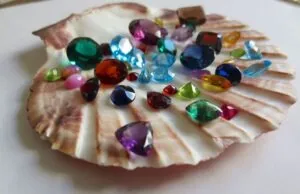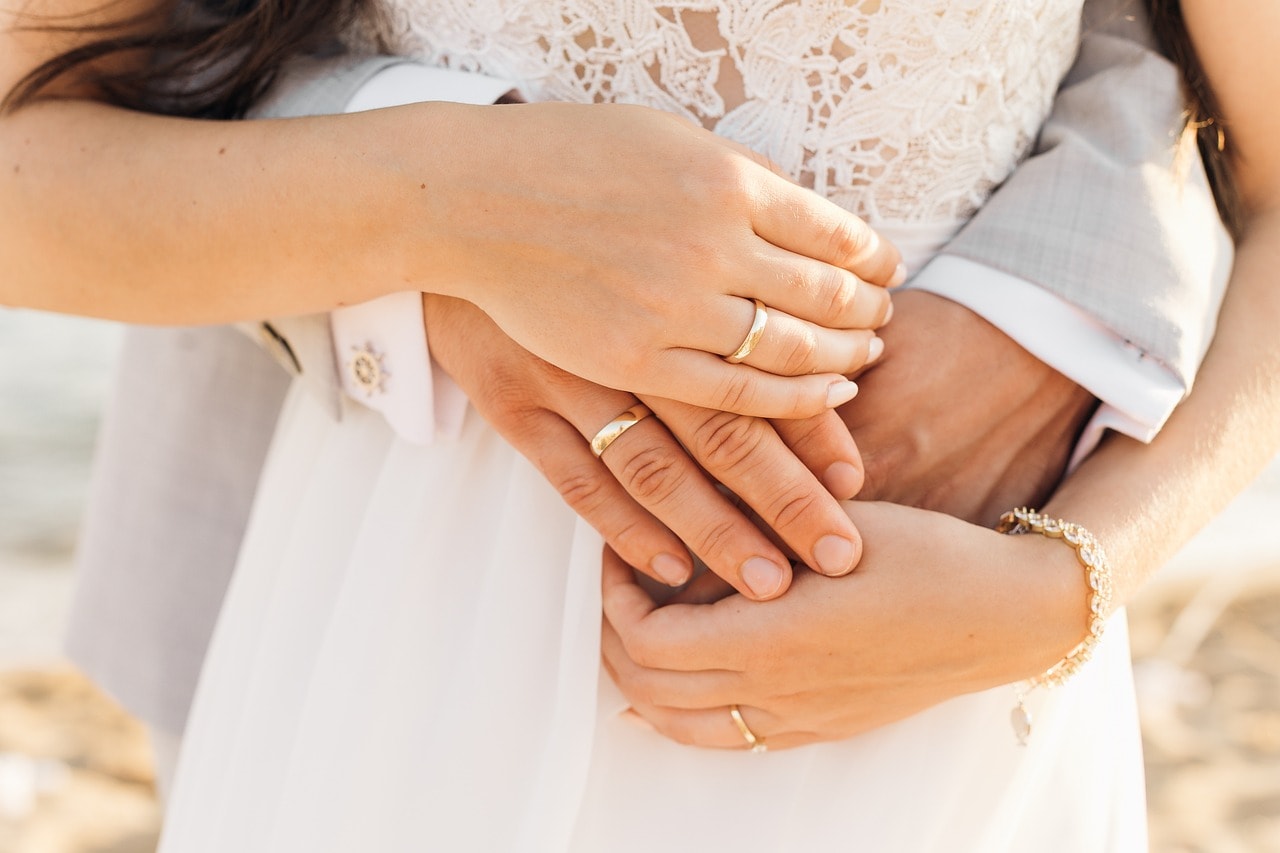
Table of Contents
Choosing the metal for your ring or jewelry piece is usually the simpler step compared to picking the right gemstone but even then there are some points of confusion people face.
For example, what is the difference between 18K and 14K gold? Which is better for you and how should you choose between them? In fact, what do these measurements even mean? Let’s go over all these questions one by one below.
Bottom Line: The difference comes down to color and durability.
Why 18k Gold Is Better than Pure 24k Gold
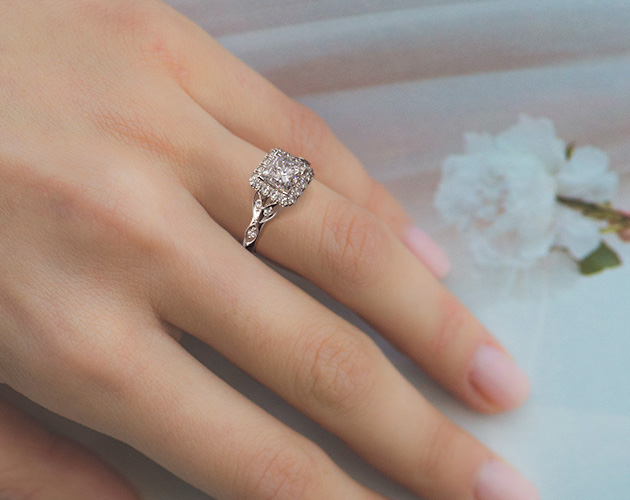
Gold karats (often spelled “carats” outside of North America) are a measure of the purity of gold. Pure gold is too soft for most practical uses, especially in jewelry, so it is often alloyed with other metals to improve its durability and strength.
24K indicates pure gold with no additional metals, which means that 18K gold is an alloy containing 75% gold and 25% other metals. For yellow gold that 25% is comprised of silver, copper, zinc, nickel, and palladium (10% to 12% copper, 12% to 15% silver, and 0% to 3% zinc or nickel).
If the gold needed to have a rose color, however, that 25% would be almost entirely copper (22% to 23%) with just 2% or 3% silver. Similarly, for white gold, the alloy would include 0% to 10% silver and 15% to 25% palladium.
Regardless of the exact color and mixture, the key properties that make 18K desirable are that it’s harder than 24K gold and that much more durable and more suitable for jewelry use. So, for a lot of people, 18K gold is the perfect marriage between beauty and durability.
What About 14k Gold?
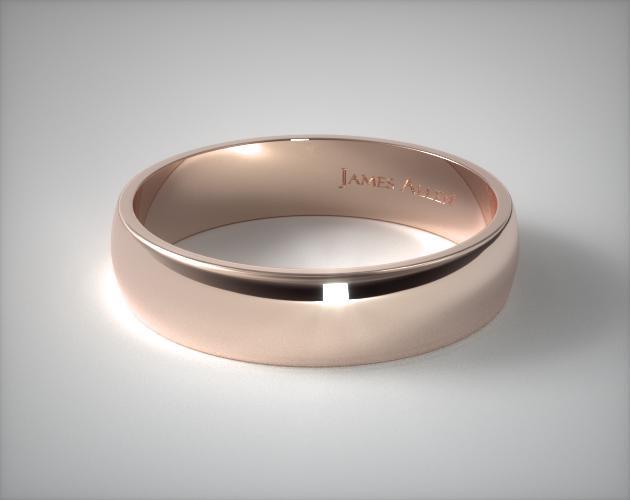
14K gold alloys are created for the same reason as 18K gold – to give people gold that looks as stunning as 24K gold but is much more durable and long-lasting even if you wear it every day for years. The only difference is that with 14K gold, the percentages go like this – 58.3% gold and 41.7% other metals:
- Silver, copper, zinc, and nickel for yellow gold
- Copper and silver for rose gold
- Palladium and silver for white gold
Once again, the exact percentages can fluctuate depending on the look the jeweler is going for. Most of the time, the goal is to make the 14K gold look as bright and shiny, and as close to 18K and 24K gold as possible, while using the 41.7% of other metals to make 14K gold jewelry sturdy enough to last for decades and centuries.
What Are the Main Differences Between 18K Vs 14K Gold?
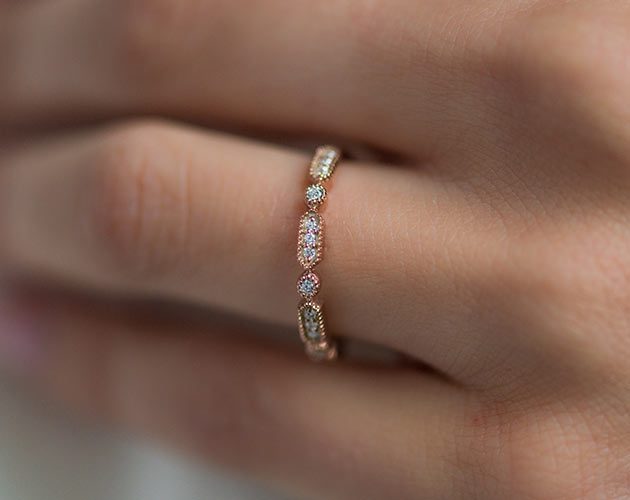
There are four main differences between 18K and 14K gold. Both have pros and cons, but the one you choose depends on your preferences, budget, and lifestyle.
1. Durability
Just like 18K gold is significantly harder and more durable than 24K gold, so is 14K noticeably more durable and long-lasting than 18K gold. After all, only about half of it is pure gold.
2. Value
Naturally, since 18K alloys have 16.7% more gold in them than 14K, they are more valuable monetarily than 14K gold alloys. In practical terms, this means a few things for you. First, 18K gold jewelry will always be a bit more expensive than 14K gold jewelry. Compare this 14K white gold ring with this equivalent 18K white gold ring. The price difference is $150, which is quite a lot.
For some, 18K gold can be seen as a “better investment” if you’re buying your gold jewelry not so much to wear it but for its resale value. But if you’re looking to buy an engagement ring or other jewelry, 14K is more affordable and the money you save there can be put into a better setting or a bigger diamond.
3. Color
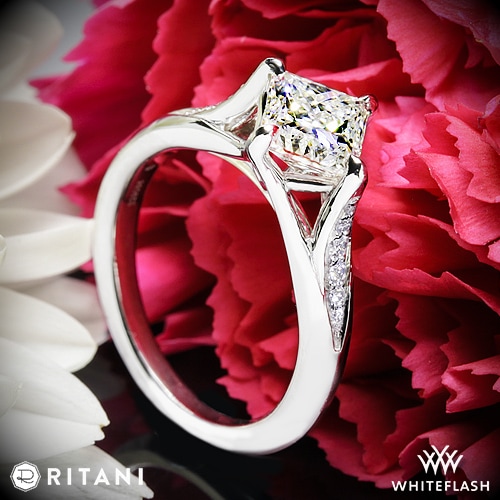
While an expert will usually be able to tell the difference between 18K and 14K gold, the difference isn’t all that significant for most people. However, 18K gold can appear shinier and yellower than 14K gold.
4. Lifestyle
People with active lifestyles, who love to play sports, or have to work a lot with their hands, tend to prefer 14K gold because it’s more durable and resistant to scratches.
Which Should I Choose?
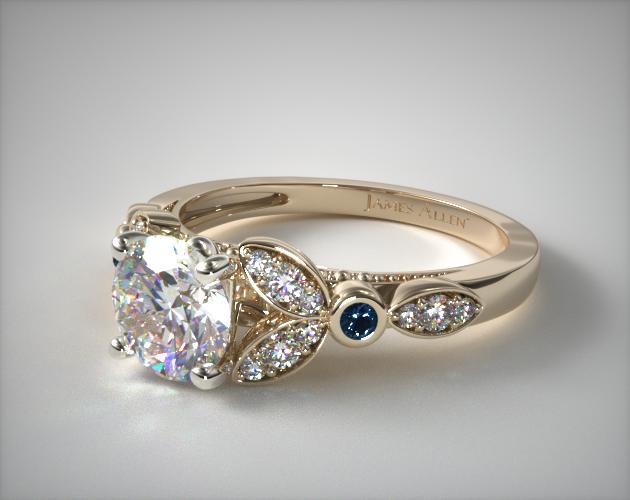
In most situations, we would recommend 14K gold over 18K gold when it comes to jewelry you want to wear regularly. If instead, you’re looking for a piece you’ll only wear occasionally and you’re willing to pay extra for a higher value, 18K gold is the way to go. Most jewelry purchases are made with everyday use in mind, however, which is why 14K alloys are more common than any other type of gold nowadays.
Wrapping Up
Both 14K and 18K gold alloys are excellent for jewelry pieces of all kinds – engagement and wedding rings, earrings, necklaces, and more. There are some slight differences in hardiness and value between these two purity grades and those are worth considering but, all in all, you’ll probably be happy with either.
Check out our other articles on jewelry metals for more information.
How to Choose the Right Metal for Your Engagement Ring
Metals That Tarnish Used in Jewelry (And Why)







